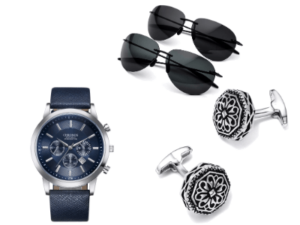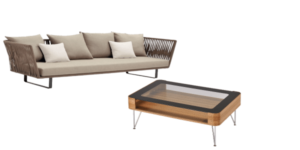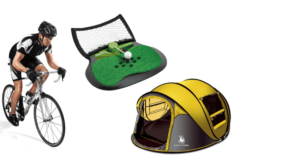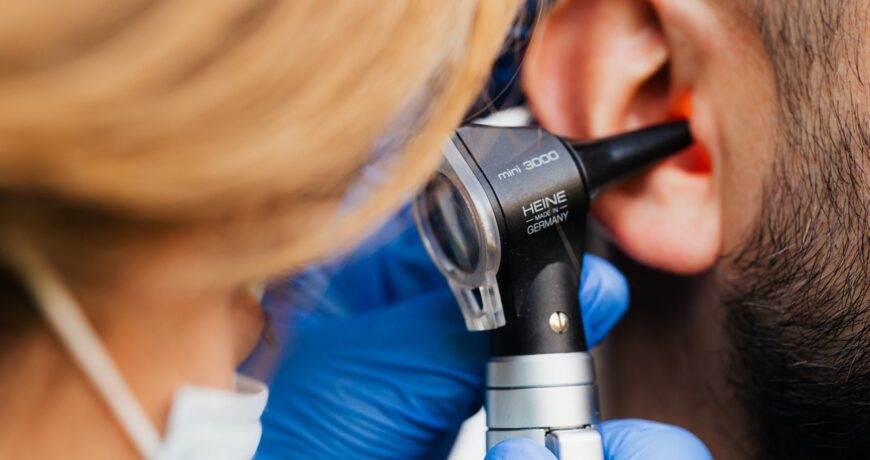No products in the cart.
How to Improve Your Hearing Naturally
How to Improve Your Hearing Naturally
Hearing loss comes on gradually and methodically, depending on your general health history and your lifestyle habits. Losing your hearing is unsettling and frustrating, especially for those who may not develop apparent symptoms until the condition becomes severe. Hearing is one of the most cherished senses. To be able to listen to nature, music, and even people’s voices is an essential gift. When we lose that sense, we lose a fundamental part of who we are.
Most adults start developing age-related hearing loss in their mid-60s. Besides aging, other factors such as continuous exposure to loud noise, illnesses, medication, heredity, and excessive build-up of wax can block your ears’ proper functioning.
It’s important to get your ear exam done by your otolaryngologist now and then. It’s just as vital to incorporate natural and safe methods to increase hearing power, alleviate the symptoms, and prevent total hearing loss.
While your ear specialist may take corrective action such as surgery to deal with hearing problems, it might prove futile to reverse hearing loss entirely. The good news is, you can take preventive action today to prevent or significantly stall the process of hearing loss.
Your hearing may improve if you wear a prescription hearing aid. But, if you want to do more to enhance your natural hearing ability, there are alternative ways to do so. In this article, we explore several ways to improve your hearing naturally.
1: Meditation for Hearing Loss
2: Positive Effects of Yoga on Hearing Loss
3: Hand Gestures for Hearing Improvement
4: Foods for Hearing Loss
5: Exercise for Your Hearing Loss
6: Take Vitamins & Supplements for Ear Health
7: Natural Herbs for Hearing Loss
8: Swap Earphones to Bone Conduction Headphones to Protect Your Hearing
9: Wear Assistive Listening Devices to Hear Better
10: Wear Noise Reduction Earplugs
11: A Summary to Improve Hearing Naturally
12: Conclusion
Meditation for Hearing Loss
“The best way to support your healing is to discover a CALM state of living.”

Meditation is a mental practice that involves directing your attention solely to a single focal point. The focus may either pertain to your breathing, a mantra, or a body part.
As it is, our day to day stress levels continue to wreak havoc on us. Increased anxiety levels trigger a release of fight or flight chemicals in our bodies. As a result of prolonged exposure to these chemicals, our body organs become inflamed, which often leads to their untimely deterioration. One such chemical is adrenaline, which, if produced continuously for lengthy periods, can reduce and even wholly restrict blood circulation to the delicate inner ear.
Ear conditions such as tinnitus and Ménière are highly linked to anxiety. Meditation to improve hearing has been proved to boost blood circulation within the ear significantly and effectively relieving unwanted symptoms.
How to Meditate for Hearing Improvement

Exercise your ears by sitting quietly in a nature park or other public area, surrounded by birds chirping, a flowing river, or people conversing. Single out and focus on each sound while taking deep breaths to increase blood flow to your ears. Focus on the sound and try to locate where the sound is coming from.
This exercise helps increase oxygen supply to your inner ear and improves your brain’s ability to fine-tune sounds around you with precision.
Whichever location you choose, ensure that the ambient noise is not too loud not to aggravate your symptoms.
Positive Effects of Yoga on Hearing Loss
“Yoga shines the light of awareness into the darkest corners of the body.”
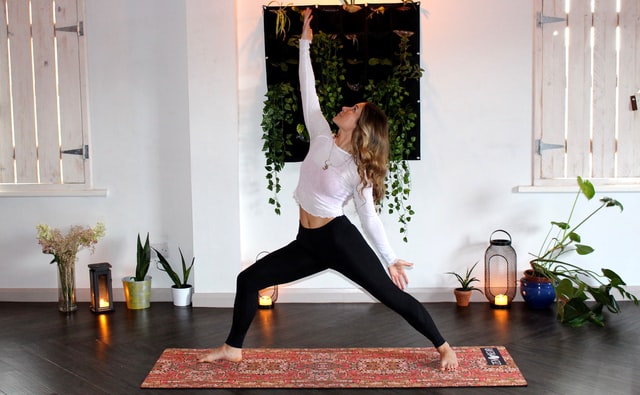
Our ears are not adapted to loud sounds. However, due to some occupations such as drilling, urban lifestyle, and loud music, our hearing can get impaired. Fortunately, incorporating yoga to improve hearing exercises can help rejuvenate the inner ear.
Yoga boosts muscle tone. It is a proven way to boost nerve function for carrying signals to the brain efficiently.
Relaxing your neck and facial muscles help increase blood flow to your inner ear. Additionally, stretching those muscles helps reduce oxidative stress associated with hearing loss.
Yoga for Hearing Problem Exercises

If you find yourself struggling to make out words and understand sounds, follow these simple but effective yoga for hearing loss prevention exercises:
Step 1: Rotate your head sideways as if to say no. Gently and deliberately alternate your head to the left and the right, stretching as far as you can go on each side. Be careful not to over-stretch your neck and cause pain.
Repeat this process several times a day to streamline your neck, shoulder, and facial muscles for improved oxygen circulation to your ears.
Step 2: As we age, there is reduced efficiency of blood supply to the head and the parts of the ear. To improve blood flow, move your head up and down as if to nod yes. Tuck your chin into your neck as you look down, then gently raise your head to look up.
Step 3: Lay down next to a wall. Lift your legs up the wall while relaxing your upper body for 10 minutes. This pose increases blood flow to your head as well.
Hand Gestures for Hearing Improvement
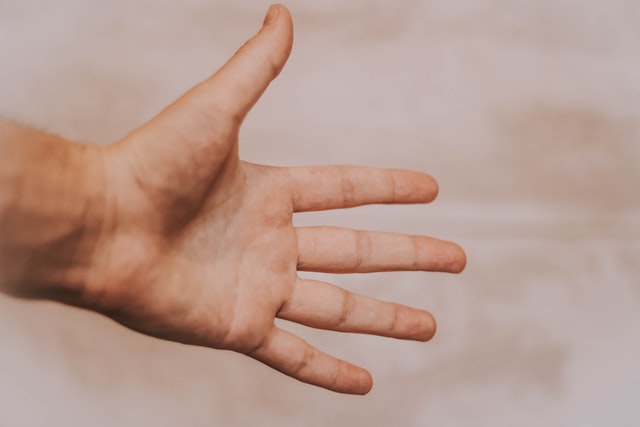
According to ancient medicine, the five fingers symbolize the five elements of nature, which are Fire, Air, Sky, Earth, and Water. It is believed that different regions of the palm are connected and therefore represent other areas in the body and the brain.
The thumb symbolizes fire, the index finger symbolizes air, the middle finger symbolizes sky/space, the ring finger symbolizes earth, and the little finger symbolizes water.
When a finger embodying one of the elements is brought in contact with the thumb, which symbolizes fire, a charge is released, which balances that particular element and body part.
This practice is useful for dealing with Tinnitus, Vertigo, and for general improved hearing power. It should be practiced for at least 20 to 30 minutes every day.
Steps to Follow
- Find a quiet space, sit on a comfortable mat, and cross your legs.
- Bend your middle finger, then place your thumb over it.
- Ensure that your middle finger touches your thumb’s base. You can apply gentle pressure to the thumb to help hold the middle finger in position.
- Sit in that pose for a minimum of 20 minutes, inhaling and exhaling gently and mindfully.

This convenient and easy to do hand gesture can be done at any time of the day. You can do it twice a day for a minimum of 10 minutes each time.
Heightened stress and noise levels are some of the primary causes of hearing loss. As such, you should include daily Yoga exercises for ears as part of your routine and not wait till you fall ill.
Yoga is an excellent means of enhancing your overall body health, increasing your energy levels, and strengthening your mental state to withstand everyday challenges.
Foods for Hearing Loss
“Eat well, hear well.”

Potassium

Potassium-rich foods help regulate the fluid in your inner ear. This is a very crucial function because our bodies face constant wear and tear. A drop in the ear fluid levels leads to hearing loss.
As such, load your meals with potatoes and tomatoes. Mix your yogurt with raisins, apricot, and bananas. Take a refreshing fruit salad consisting of melons and oranges. These foods are not only delicious but also rich in Potassium.
Folic Acid

As old age sets in, macular degeneration becomes your most significant challenge. Folic acid is an antioxidant that helps lower macular degeneration.
Folic acid further helps your body generate new cells and increases oxygen circulation in the body tissues. Folic acid helps prevent the loss of hair cells and nerves within the inner ear. These hair cells are crucial as they act as sensory receptors and assist in conducting sound. The nerves carry the stimuli to the brain for proper sound interpretation.
With this in mind, incorporate eggs, fish, pumpkins, carrots, dark leafy greens, liver, and sweet potatoes in your meals.
Magnesium

Study reveals that people treated with magnesium combined with Vitamins A, C, and E were safe upon exposure to high noise levels. It was deduced that magnesium acted as a protecting barrier to hair cells in the inner ear against loud sounds.
A shortage of magnesium has been linked to shrinkage of inner ear blood vessels, which causes oxygen deprivation leading to hearing loss. Ensure you get sufficient amounts of this superhero mineral from bananas, potatoes, broccoli, and spinach.
Zinc

Zinc supports cell growth and the healing of body tissues. As a known immune booster, this mineral will ward off infections of the inner ear. Take beef, organ meat, cashew nuts, almonds, peanuts, beans, lentils, – and dark chocolate!
Omega 3 Fatty Acids

This wouldn’t be a complete list without the Omega-3 fatty acid. Not only do these fatty acids prevent inflammation and age-related tissue degeneration, but did you know they’ve been shown to curb hearing loss?
Recent research found that Cod Liver Oil can decrease the risk of age-related hearing loss by over 40%. Omega 3s also support nerve and brain function, transmitting better sensory exchange between your brain and ears.
Be sure to get your daily serving of omega-3 from flaxseed oil, salmon, sardines, fish, and cod liver oils.
Exercise for Your Hearing Loss
“Physical fitness is not only one of the most important keys to a healthy body. It is the basis of dynamic and creative intellectual activity” – John F. Kennedy

Some muscles surround the ear. Hearing exercises, as well as general body exercises, help us stay in good overall shape.
Exercising consistently for twenty minutes every day releases the feel-good hormones to the whole body. These hormones alleviate anxiety-related symptoms and improve blood flow. In turn, a rich blood supply strengthens the integrity of our body tissues.
If you exercise consistently for two weeks, you will start noticing a difference.
Best exercises to improve hearing are:
Walking
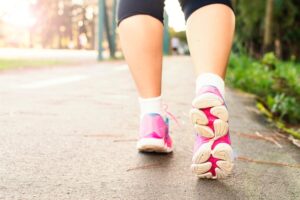
Exercising need not be vigorous all the time. Try combining concentration techniques discussed earlier with a brisk walk in nature or public spaces.
Dancing

Swaying to a beat helps improve coordination. Ear problems often cause a lack of balance. Listening to soft music, deciphering the words while moving according to the beat has been proven to improve hearing loss.
Solving Puzzles

You’ve heard it said that the brain is like a muscle. Like any muscle, your mind requires a proper workout to stay healthy and robust.
A healthy brain plays a crucial role in processing and decoding sound information that our ear receives. You lose what you don’t use. Therefore, prevent your brain from atrophy and shrinkage by solving various puzzles like Sudoku, crosswords, and word searches every day.
These mental exercises will keep your brain juices flowing, strengthen connection paths, and prevent brain deterioration.
Take Vitamins & Supplements for Ear Health

Your ears are complex organs that require many various vitamins and nutrients to function correctly.
Common conditions, such as diabetes, high blood pressure, age-related macular degeneration, and multiple sclerosis can affect your hearing.
All these conditions cause chronic inflammation, which can damage your organs from head to toe.
While some diseases, especially hereditary ear loss, can’t be entirely prevented, you can manage them with healthy supplements and vitamins for ear health.
Though a variation of several factors affects these conditions, nutrition appears to have a crucial impact on all of them.
Some critical vitamins for inner ear health are;
- Vitamin C from strawberries, oranges, lemons, tomatoes, and bell peppers
- Vitamin B-12 from seafood, chicken, beef, eggs, and dairy products
- Vitamin A from carrots, pumpkins, and sweet potatoes
Manage chronic conditions by supporting your medication with the proper ear vitamins and supplements.
Natural Herbs for Hearing Loss
“All that man needs for health and healing has been provided by God in nature. The Challenge of science is to find it.” – Paracelsus.

Our ears are prone to both outside and internal toxic elements or illnesses. A natural cure for hearing loss needs to be taken seriously because our bodies are built upon natural circumstances and therefore adhere to holistic approaches.
We are natural, and it is with natural solutions that we’re best able to restore our bodies. It is NOT a mythical belief to utilize natural and organic remedies for hearing loss. Remember that natural treatments are not a “quick fix.” Patience and determination are essential when it comes to herbal therapy.
Most western medicine researchers are finding that various herbs are effective solutions to some chronic illnesses.
Holistic wellness should complement prescription drugs. While there are no known natural cures for your hearing loss, there are natural plants that have proven the ability to prevent and slow down the further deterioration of your hearing.
Herbal remedies that can prevent the onset of hearing loss while enhancing your general wellness are:
Gingko Biloba

A popular antioxidant herb in Chinese medicine, this herb treats the inner ear. It protects nerve cells and increases blood flow to the ear. These functions are known to increase hearing power.
Hawthorn Berry

This plant is famed for high blood pressure and digestive system treatment, but it is also believed to be useful in hearing improvement, as it boosts blood circulation to the ears.
Spearmint

You may recognize spearmint flavour from your toothpaste or chewing gum. The actual herb is rich in folic acid. Insufficient folic acid causes a quick onset of age-related hearing loss. This refreshing herb is packed with antioxidants, vitamins, and nutrients too. It is commonly taken as a type of tea.
Garlic

Garlic is a herb and a spice. It consists of potent compounds that are excellent for a healthy cochlea. Not only does garlic promote blood flow to your ears, but it also prevents inflammation and speeds up the healing of body tissues.
Turmeric

This root has been used as a remedy since time immemorial. Turmeric is an excellent source of anti-inflammatory compounds. It reduces pain and is also high in potassium. As seen earlier, potassium is your number one go-to for healthy ears. Potassium concentration in your body tends to dwindle as we age. Turmeric will replenish potassium supply for perfect cell interaction in the inner ear.
Combining the natural remedies with Vitamin C, E, zinc oxide, and copper supplements ensures your ears are functioning optimally.
Most assorted supplements contain vitamins that are good for the ear. However, it’s essential to consult with your doctor or read labels to confirm the appropriate serving, according to your age and health status.
Taking care of your ear health and hearing requires a well-balanced diet, as well as healthy habits.
Swap Earphones to Bone Conduction Headphones to Protect Your Hearing
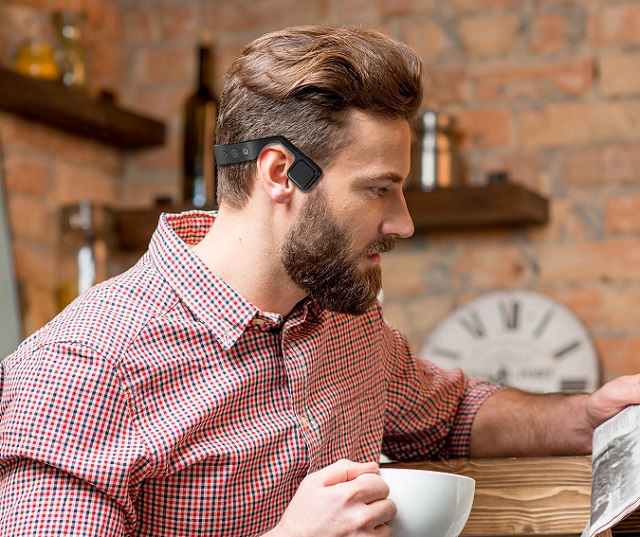
Despite constant warnings that playing loud music through conventional earbuds is damaging to the ears, most people tend to ignore it until it’s too late. The negative consequences are amplified when you’re using earphones.
Blasting loud music and frequent earphone use can cause irreversible hearing loss known as Noise-Induced Hearing Loss(NIHL).
However, earphones are must-have accessories among our electronics. It’s hard to listen to quality music without headphones or earphones.
Many songs sound different without these devices. Music may lack depth, texture, and some beats may be missed coming from external speakers.
The good news is, experts have designed wireless bone conduction headphones to enable you to jam to your favorite tunes safely. These special headphones help with the prevention of hearing loss, as sound bypasses the ear canal entirely.
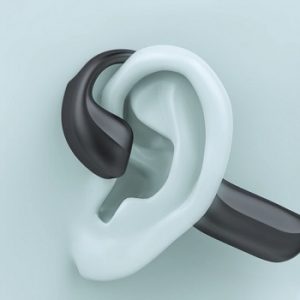
The bone conduction headphones are the best headphones to prevent hearing loss because they sit on the cheekbones instead of going within the ears. This function helps prevent loud noise levels from desensitizing sound conducting hair and nerves within the ear.
Unlike conventional earbuds, which expose the inner ear and conduction hairs to irritation, the bone conduction headphones transmit sound through your bones straight to the inner ear preventing ear irritation.
Wear Assistive Listening Devices to Hear Better

Hearing aids bring significant improvement to most people with hearing loss. However, assistive listening devices (ALDs) can make hearing even much easier.
In some situations, hearing aids are not enough. They may fail to pick up sounds transmitted via telephone, TV, speakers, or speech in noisy surroundings.
An assistive listening device is a personal sound amplifier that helps improve sound by transmitting it right into your hearing aid.
There are several types of Assistive Listening Devices, including:
TV Streamer

Enjoying your favorite TV show can be a challenge for somebody with hearing loss. Still, very high TV volume can disturb others in the room.
A TV listening Device assists those who find it hard to hear the TV when it is at a regular volume, and thereby reducing excess sound for others. It acts as a TV hearing amplifier that allows room for personal volume adjusting, rather than doing it for the entire room.
Admittedly, most TV amplifiers in the market are pricey. However, there are some good and affordable alternatives as well. The bone conduction hearing amplifier allows you to enjoy your show and chat with your friends without denting your pocket.
Most important factor is to ensure you select ear amplifiers which meet your specific needs.
Amplified Telephones
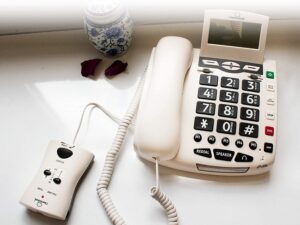
Amplified telephones are designed with an adjustable volume and tone control dial. They’re specifically made for those who find it hard to hear telephone conversations.
They come in varied designs such as a built-in speakerphone, memory-dial button, extra-loud ringing volume, and adjustable tone control function to help you hear more clearly.
This telephone is a personal amplifier designed for those with mild to severe hearing loss.
Amplified Alert Systems
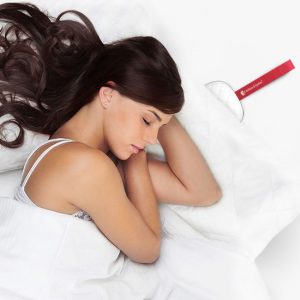
These are personal listening devices customized for people with hearing loss. They include alert systems and amplified alarm clocks.
- Alert Systems – They are designed with a lamp flasher that lights up when the telephone is ringing, when the alarm goes off or when the doorbell rings. They can also be tuned with smoke detectors to wake you up when sleeping and are not wearing hearing aids.
- Amplified Alarm Clocks – These are designed with an extra loud alarm to match your specific “normal” hearing levels. Most amplified alarm clocks come with a pillow shaker option that vibrates your pillow when you may have company to avoid waking others up.
Personal Amplifiers
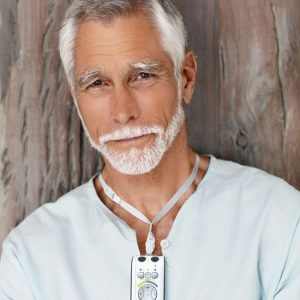
A personal amplifier is an assistive listening device that works with or without your hearing aid as an ear amplifier. It is mostly used during conversations with other people.
The device features a microphone attached to your headphones. You wear headphones, and the other person speaks into the speaker.
You need not worry about the cumbersome features that ear amplifiers had in the past. Technology has come a long way. There are sleek and invisible wireless hearing amplifiers in the market that fit right in your ear for you to choose from.
Personal amplifiers are mostly used by those with severe forms of hearing loss.
Wear Noise Reduction Earplugs
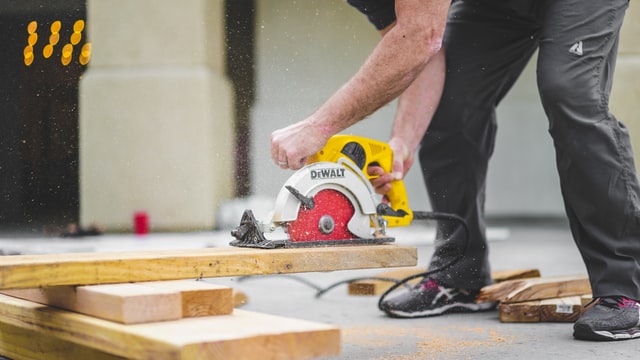
Do you experience difficulty sleeping at night? Does your partner snore? Do you live next to a construction site? Do you experience ear pain during flights? Or do you work in noisy environments?
If your answer is yes to any of these questions, you need a sturdy pair of noise canceling earplugs to solve your problem.
Likewise, if you frequent shooting range zones and work in construction sites, the noise can be deafening. Continuous exposure to such high levels of noise will expose you to extreme tinnitus. Luckily, a proper pair of noise canceling earmuffs can help prevent such debilitating conditions.
Ear protection such as earmuffs and earplugs are super useful in arresting premature hearing loss.
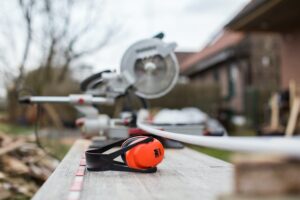
Many sound reducing earplugs are made with silicone materials, which makes them comfortable and convenient to wear. However, there are earplugs made from foam (PVC) and other materials.
Even in concerts, it’s imperative to wear noise reduction earplugs, especially for high noise levels, which last for over one hour. Performing artists wear “Hi-Fi” earplugs to protect themselves from ear damage caused by their performances.
Remember to take breaks if you live or work in a zone that has very high noise levels. Even the best earplugs and earmuffs cannot protect you from the irreversible damage that constant noise levels can cause.
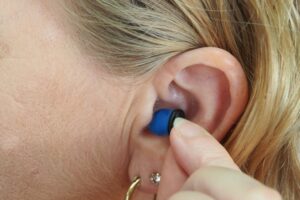
Additional Hearing Loss Preventive Measures
Get Enough Sleep – When you are overtired, your ears can get easily strained and have a constant ringing sound or pressure imbalance.
Do you notice how much you yawn when tired? That is an attempt by the body to relieve pressure within your ear tubes. Healthy amounts of sleep and rest can help relieve tinnitus and vertigo triggered by fatigue.
Don’t Smoke – Smoking increases the risk associated with numerous health issues. Compared to nonsmokers, smokers have over a 70 percent increased risk of getting hearing loss. Smoking poses issues — including blockages — in the eustachian tube. When this tube is disturbed, pressure builds up within the inner ear and often leads to hearing loss.
Additionally, smoking has been shown to cause nerve damage, macular degeneration, ear cancer — all of which can dramatically impact hearing.
Fortunately, your ears and other tissues can recover from harm caused by years of smoking tobacco within the first hours of quitting.
The longer you can resist smoking, the more your blood vessels will heal. Inflammation caused by smoking will similarly wane significantly.
Practice Good Hygiene – Wash your hands and clean your outer ear with earbuds to reduce wax and dirt build-up. You may not associate washing your hands as a critical component towards better ear health, but cleanliness plays a significant role in promoting better general wellbeing.
Summary to Improve Hearing Naturally
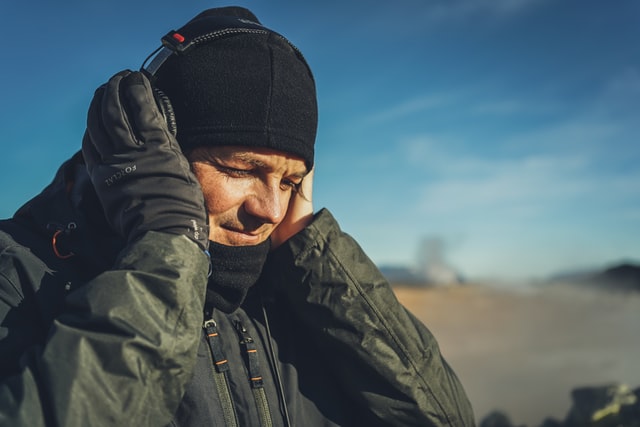
Receiving a wake-up call regarding your hearing isn’t a tall order. According to the World Health Organization, over 5% of the world’s population suffers debilitating hearing loss. What’s worse is that it is estimated that in the next 20 years, one in every ten people will suffer disabling hearing loss.
We all face the negative possibilities of impaired hearing as the years pass by. To reduce the risk and slow down these probabilities, ensure to:
- Check with your ear doctor every year.
- Eat an assortment of fruits, tubers, and vegetables.
- Meditate for increased hearing power
- Take the right supplements and vitamins
- Incorporate 20 minutes of yoga for hearing loss exercises in your daily routine
- Do full-body exercises every day
- Swap regular earphones for bone conducting headphones
- Create ear-friendly surroundings free of excessive noise
- Use appropriate hearing amplifiers to prevent further ear strain
- Use noise canceling earplugs or earmuffs to protect your ears
- Avoid smoking, practice good hygiene, get enough rest.
Conclusion

Remember that you hardly notice any hearing loss progression until it starts impacting your life. Even then, not many people will admit to having hearing loss. While we can’t stop or reverse the hand of time, your lifestyle and dietary choices play a significant role in how fast the aging process will affect your hearing.
Charging and maintaining your body well while keeping an eye on what you eat certainly plays a substantial role in how long your hearing power lasts.
Various people have practiced all the measures above to stop or even reverse hearing loss. Talk with your ear physician. Provide them with specifics on whichever holistic ideas you may want to pursue. Listen to their opinions, but most of all, listen to your heart.



